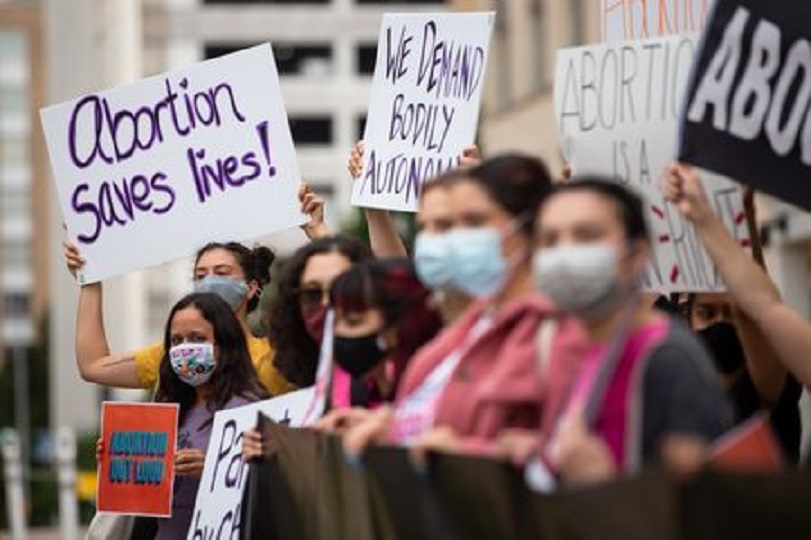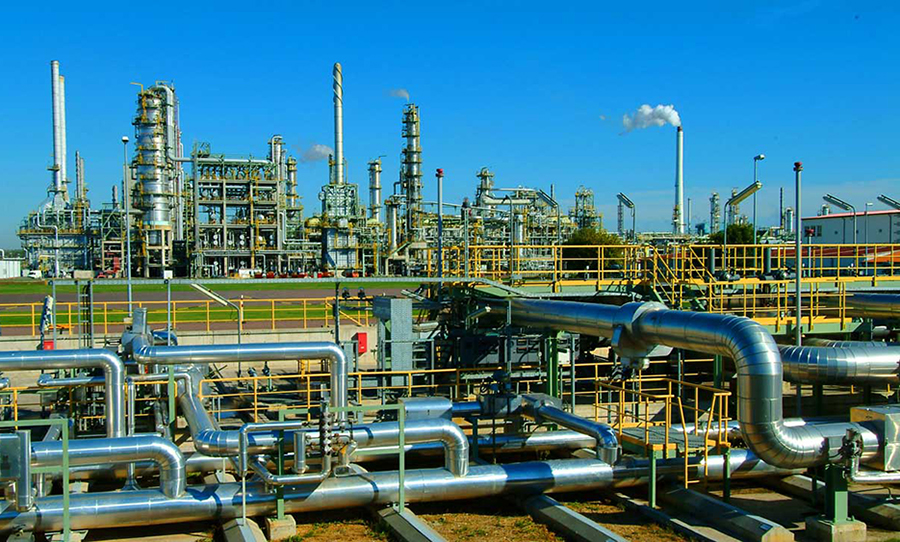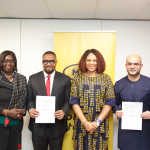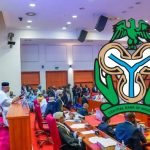World
Anti-abortion Policy Could Save Russia’s Population

By Kestér Kenn Klomegâh
Russia, the largest country in the world by area, has a population of 147.2 million, according to the population census.
In the 2021 census, it was said that roughly 81% of the population were ethnic Russians, and 19% of the population were ethnic minorities. Demographers say Russia has become increasingly reliant on immigration to maintain its population. Russia’s population is increasingly decreasing since the start of its invasion of neighbouring Ukraine in late February 2022.
The demographic crisis has deepened primarily due to high military fatalities while simultaneously facing renewed brain drain and human capital flight caused by Western mass sanctions imposed on the country. In March 2023, The Economist reported that “Over the past three years the country has lost around 2 million more people than it would ordinarily have done, as a result of the war in Ukraine, and streaming exodus.”
Despite amazing potential conditions available in this huge territory, Russia has been experiencing oscillating patterns of population since the collapse of the Soviet era. After the Soviet break up, Russia has witnessed ‘back and forth’ with its demographic situation, even state policies that were adopted could not support an increased population over the years.
Russia is considered a religious country, and yet abortion rates are high. Understandably, abortion is legal and, therefore, it has had a negative impact on population growth. The economic situation has not encouraged families to have beyond a child, thus it is more or less a one-child policy. Now, Russia’s war with Ukraine is taking a heavy toll on the population too. There are claims of hundreds of thousands of male soldiers already killed at the war-front, as a result, has created single families in the country.
Official Russian Statistics
Demography figures could be staggering. But in August 2023, the Federal State Statistics Service (Rosstat) said the natural population in Russia slowed by 29% in January-June 2023 compared with the same period of 2022, to 272,500 from 383,800.
The number of births fell 3% to 616,200 from 635,200 and the number of deaths 12.8% to 888,700 from 1,019,000. Natural population decrease in 2022 was down 42.5% in comparison with 2021, to 599,616 from 1,042,675.
As a result, by the beginning of 2023 Russia’s population excluding official statistics for the Donetsk People’s Republic, the Lugansk People’s Republic, and the Zaporizhzhia and Kherson regions, had fallen to 146.4 million, from 147 million at the start of 2022.
In addition, Russia’s Federal State Statistics Service said on November 10 that 1,305,513 persons died over nine months of 2023, and concretely 507,131 divorces were registered this year. According to statistics, the total number of unemployed in Russia in September amounted to 2.3 mln people. These figures were also reported by the state media, Tass News Agency.
Russia’s Federal Migration Service (FMS) has its narratives on trends of immigrants, especially young Russians escaping military mobilization, and well-talented specialists and professionals looking for greener pastures abroad. These specialists and professionals are highly dissatisfied with the current political situation in the country, and consistently exiting to Europe and the United States.
What are the pathways out of this dilemma?
Patriarch Kirill, of Moscow and All of Russia, in Sept. 2023 signed an open public petition for the adoption of an anti-abortion law in the Russian Federation. The text of the petition has been discussed and agreed with the Patriarchal Commission for Family Matters and the Protection of Motherhood and Childhood.
Its authors stand against abortions, which they describe as a legal murder of unborn children. They demand amendments to the legislation and recognition of a conceived embryo to be a human creature whose life, health and well-being should be protected by law.
The petition’s authors come categorically against any surgical or medical-induced termination of pregnancy. They believe that pregnant women and families with children should receive material aid, the size of which should not be below the minimal subsistence level, from the state budget.
By mid-August, the activists from the Pro-Life all-Russia social movement had gathered the one-millionth signature in support of the legal ban on abortion. The Patriarch said that the Church considers abortion to be a sin and its position is to support the growth of the population.
Now in November 2023, Patriarch Kirill of Moscow and All Russia finally and strictly demanded that induced terminations of pregnancies be removed from services provided by private and public clinics, healthcare institutions and hospitals throughout the Russian Federation. The head of the Russian church also added that a resolute revision of demographic policy is a strong condition for the survival of modern Russia.
Demography and its Implications for Russia’s economy
It is often said that Russia lacks a sufficient number of migrants to fulfil its ambitious development plans. Despite various official efforts, including regular payment of maternal capital to stimulate birth rates and regulating migration policy to boost population, Russia is reportedly experiencing a decreasing population. In the past, government efforts to re-populate the Far East also proved futile, incapable of producing any useful results in the Far East. Seemingly, most economic projects have shifted to Chinese who are actively undertaking production there in the region. The Far East region is a colossal region with a small population but huge untapped economic potential and attracting the Chinese.
According to analysts interviewed for this article pointed out that Moscow has remained unfriendly towards foreign immigrants, especially those from the former Soviet republics. Nevertheless, the analysts suggested that these huge human resources could be used in the vast agricultural fields to boost domestic agricultural production. On the contrary, the Federal Migration Service has deported these illegal migrants from Russia. Due to short-sightedness, Russian authorities simply don’t see the need to legalize them, or facilitate steps to obtain legal documents.
The government can ensure that steady improvements are consistently made with the strategy of legalizing (regulating legal status) and redeploying the available foreign labour, the majority from the former Soviet republics rather than deporting back to their countries of origin. There are an estimated four million undocumented immigrants from the ex-Soviet states in Russia.
Russian analysts told me during several interviews that Russia has encouraged or even forced people in occupied or annexed regions to become Russian citizens, a procedure known as passportization. This includes the Donetsk, Kherson, Luhansk and Zaporizhzhia oblasts of Ukraine, and South Ossetia and Abkhazia in Georgia. But these would not help Russia’s population to any large degree. Rather, the country needs an immigration policy plus other topmost population support measures.
On the other hand and for the past few years, Moscow Mayor Sergei Sobyanin has also been credited for transforming the city into a very neat and smart modern one, thanks partly to foreign labour – an invaluable reliable asset – performing excellently in maintaining cleanliness and on the large-scale construction sites, and so also in various micro-regions on the edge or outskirts of Moscow.
It is, however, necessary to recall here that President Vladimir Putin has already approved a list of instructions aimed at reforming the migration requirements and the institution of citizenship in Russia based on the proposals drafted by the working group for implementation of the State Migration Policy Concept of the Russian Federation for 2019-2025.
“Within the framework of the working group for implementation of the State Migration Policy Concept of the Russian Federation for 2019-2025, the Presidential Executive Office of the Russian Federation shall organize work aimed at reforming the migration requirements and the institution of citizenship of the Russian Federation,” an official statement posted to Kremlin website.
In addition, the president ordered the Government, the Interior and Foreign Ministries, the Federal Security Service (FSB), and the Justice Ministry alongside the Presidential Executive Office to make amendments to the plan of action for 2019-2021, aimed at implementing the State Migration Policy Concept of the Russian Federation for 2019-2025.
World
Russian-Nigerian Economic Diplomacy: Ajeokuta Symbolises Russia’s Remarkable Achievement in Nigeria

By Kestér Kenn Klomegâh
Over the past two decades, Russia’s economic influence in Africa—and specifically in Nigeria—has been limited, largely due to a lack of structured financial support from Russian policy banks and state-backed investment mechanisms. While Russian companies have demonstrated readiness to invest and compete with global players, they consistently cite insufficient government financial guarantees as a key constraint.
Unlike China, India, Japan, and the United States—which have provided billions in concessionary loans and credit lines to support African infrastructure, agriculture, manufacturing, and SMEs—Russia has struggled to translate diplomatic goodwill into substantial economic projects. For example, Nigeria’s trade with Russia accounts for barely 1% of total trade volume, while China and the U.S. dominate at over 15% and 10% respectively in the last decade. This disparity highlights the challenges Russia faces in converting agreements into actionable investment.
Lessons from Nigeria’s Past
The limited impact of Russian economic diplomacy echoes Nigeria’s own history of unfulfilled agreements during former President Olusegun Obasanjo’s administration. Over the past 20 years, ambitious energy, transport, and industrial initiatives signed with foreign partners—including Russia—often stalled or produced minimal results. In many cases, projects were approved in principle, but funding shortfalls, bureaucratic hurdles, and weak follow-through left them unimplemented. Nothing monumental emerged from these agreements, underscoring the importance of financial backing and sustained commitment.
China as a Model
Policy experts point to China’s systematic approach to African investments as a blueprint for Russia. Chinese state policy banks underwrite projects, de-risk investments, and provide finance often secured by African sovereign guarantees. This approach has enabled Chinese companies to execute large-scale infrastructure efficiently, expanding their presence across sectors while simultaneously investing in human capital.
Egyptian Professor Mohamed Chtatou at the International University of Rabat and Mohammed V University in Rabat, Morocco, argues: “Russia could replicate such mechanisms to ensure companies operate with financial backing and risk mitigation, rather than relying solely on bilateral agreements or political connections.”
Russia’s Current Footprint in Africa
Russia’s economic engagement in Africa is heavily tied to natural resources and military equipment. In Zimbabwe, platinum rights and diamond projects were exchanged for fuel or fighter jets. Nearly half of Russian arms exports to Africa are concentrated in countries like Nigeria, Zimbabwe, and Mozambique. Large-scale initiatives, such as the planned $10 billion nuclear plant in Zambia, have stalled due to a lack of Russian financial commitment, despite completed feasibility studies. Similar delays have affected nuclear projects in South Africa, Rwanda, and Egypt.
Federation Council Chairperson Valentina Matviyenko and Senator Igor Morozov have emphasized parliamentary diplomacy and the creation of new financial instruments, such as investment funds under the Russian Export Center, to provide structured support for businesses and enhance trade cooperation. These measures are designed to address historical gaps in financing and ensure that agreements lead to tangible outcomes.
Opportunities and Challenges
Analysts highlight a fundamental challenge: Russia’s limited incentives in Africa. While China invests to secure resources and export markets, Russia lacks comparable commercial drivers. Russian companies possess technological and industrial capabilities, but without sufficient financial support, large-scale projects remain aspirational rather than executable.
The historic Russia-Africa Summits in Sochi and in St. Petersburg explicitly indicate a renewed push to deepen engagement, particularly in the economic sectors. President Vladimir Putin has set a goal to raise Russia-Africa trade from $20 billion to $40 billion over the next few years. However, compared to Asian, European, and American investors, Russia still lags significantly. UNCTAD data shows that the top investors in Africa are the Netherlands, France, the UK, the United States, and China—countries that combine capital support with strategic deployment.
In Nigeria, agreements with Russian firms over energy and industrial projects have yielded little measurable progress. Over 20 years, major deals signed during Obasanjo’s administration and renewed under subsequent governments often stalled at the financing stage. The lesson is clear: political agreements alone are insufficient without structured investment and follow-through.
Strategic Recommendations
For Russia to expand its economic influence in Africa, analysts recommend:
- Structured financial support: Establishing state-backed credit lines, policy bank guarantees, and investment funds to reduce project risks.
- Incentive realignment: Identifying sectors where Russian expertise aligns with African needs, including energy, industrial technology, and infrastructure.
- Sustained implementation: Turning signed agreements into tangible projects with clear timelines and milestones, avoiding the pitfalls of unfulfilled past agreements.
With proper financial backing, Russia can leverage its technological capabilities to diversify beyond arms sales and resource-linked deals, enhancing trade, industrial, and technological cooperation across Africa.
Conclusion
Russia’s Africa strategy remains a work in progress. Nigeria’s experience with decades of agreements that failed to materialize underscores the importance of structured financial commitments and persistent follow-through. Without these, Russia risks remaining a peripheral player (virtual investor) while Arab States such as UAE, China, the United States, and other global powers consolidate their presence.
The potential is evident: Africa is a fast-growing market with vast natural resources, infrastructure needs, and a young, ambitious population. Russia’s challenge—and opportunity—is to match diplomatic efforts with financial strategy, turning political ties into lasting economic influence.
World
Afreximbank Warns African Governments On Deep Split in Global Commodities

By Adedapo Adesanya
Africa Export-Import Bank (Afreximbank) has urged African governments to lean into structural tailwinds, warning that the global commodity landscape has entered a new phase of deepening split.
In its November 2025 commodity bulletin, the bank noted that markets are no longer moving in unison; instead, some are powered by structural demand while others are weakening under oversupply, shifting consumption patterns and weather-related dynamics.
As a result of this bifurcation, the Cairo-based lender tasked policymakers on the continent to manage supply-chain vulnerabilities and diversify beyond the commodity-export model.
The report highlights that commodities linked to energy transition, infrastructure development and geopolitical realignments are gaining momentum.
For instance, natural gas has risen sharply from 2024 levels, supported by colder-season heating needs, export disruptions around the Red Sea and tightening global supply. Lithium continues to surge on strong demand from electric-vehicle and battery-storage sectors, with growth projections of up to 45 per cent in 2026. Aluminium is approaching multi-year highs amid strong construction and automotive activity and smelter-level power constraints, while soybeans are benefiting from sustained Chinese purchases and adverse weather concerns in South America.
Even crude oil, which accounts for Nigeria’s highest foreign exchange earnings, though still lower year-on-year, is stabilising around $60 per barrel as geopolitical supply risks, including drone attacks on Russian facilities, offset muted global demand.
In contrast, several commodities that recently experienced strong rallies are now softening.
The bank noted that cocoa prices are retreating from record highs as West African crop prospects improve and inventories recover. Palm oil markets face oversupply in Southeast Asia and subdued demand from India and China, pushing stocks to multi-year highs. Sugar is weakening under expectations of a nearly two-million-tonne global surplus for the 2025/26 season, while platinum and silver are seeing headwinds from weaker industrial demand, investor profit-taking and hawkish monetary signals.
For Africa, the bank stresses that the implications are clear. Countries aligned with energy-transition metals and infrastructure-linked commodities stand to benefit from more resilient long-term demand.
It urged those heavily exposed to softening agricultural markets to accelerate a shift into processing, value addition and product diversification.
The bulletin also called for stronger market-intelligence systems, improved intra-African trade connectivity, and investment in logistics and regulatory capacity, noting that Africa’s competitiveness will depend on how quickly governments adapt to the new two-speed global environment.
World
Aduna, Comviva to Accelerate Network APIs Monetization

By Modupe Gbadeyanka
A strategic partnership designed to accelerate worldwide enterprise adoption and monetisation of Network APIs has been entered into between Comviva and the global aggregator of standardised network APIs, Aduna.
The adoption would be done through Comviva’s flagship SaaS-based platform for programmable communications and network intelligence, NGAGE.ai.
The partnership combines Comviva’s NGAGE.ai platform and enterprise onboarding expertise with Aduna’s global operator consortium.
This unified approach provides enterprises with secure, scalable access to network intelligence while enabling telcos to monetise network capabilities efficiently.
The collaboration is further strengthened by Comviva’s proven leadership in the global digital payments and digital lending ecosystem— sectors that will be among the biggest adopters of Network APIs.
The NGAGE.ai platform is already active across 40+ countries, integrated with 100+ operators, and processing over 250 billion transactions annually for more than 7,000 enterprise customers. With its extensive global deployment, NGAGE.ai is positioned as one of the most scalable and trusted platforms for API-led network intelligence adoption.
“As enterprises accelerate their shift toward real-time, intelligence-driven operations, Network APIs will become foundational to digital transformation. With NGAGE.ai and Aduna’s global ecosystem, we are creating a unified and scalable pathway for enterprises to adopt programmable communications at speed and at scale.
“This partnership strengthens our commitment to helping telcos monetise network intelligence while enabling enterprises to build differentiated, secure, and future-ready digital experiences,” the chief executive of Comviva, Mr Rajesh Chandiramani, stated.
Also, the chief executive of Aduna, Mr Anthony Bartolo, noted that, “The next wave of enterprise innovation will be powered by seamless access to network intelligence.
“By integrating Comviva’s NGAGE.ai platform with Aduna’s global federation of operators, we are enabling enterprises to innovate consistently across markets with standardised, high-performance Network APIs.
“This collaboration enhances the value chain for operators and gives enterprises the confidence and agility needed to launch new services, reduce fraud, and deliver more trustworthy customer experiences worldwide.”
-

 Feature/OPED6 years ago
Feature/OPED6 years agoDavos was Different this year
-
Travel/Tourism9 years ago
Lagos Seals Western Lodge Hotel In Ikorodu
-

 Showbiz3 years ago
Showbiz3 years agoEstranged Lover Releases Videos of Empress Njamah Bathing
-

 Banking7 years ago
Banking7 years agoSort Codes of GTBank Branches in Nigeria
-

 Economy2 years ago
Economy2 years agoSubsidy Removal: CNG at N130 Per Litre Cheaper Than Petrol—IPMAN
-

 Banking3 years ago
Banking3 years agoFirst Bank Announces Planned Downtime
-

 Banking3 years ago
Banking3 years agoSort Codes of UBA Branches in Nigeria
-

 Sports3 years ago
Sports3 years agoHighest Paid Nigerian Footballer – How Much Do Nigerian Footballers Earn













